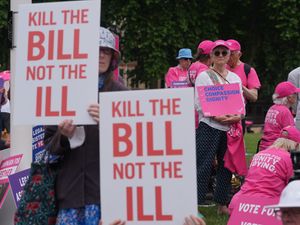Fact check: Pensions triple lock was temporarily suspended after pandemic
‘Double lock’ was used to uprate state benefits for older people due to market volatility caused by Covid-19, lockdown and furlough scheme.

During this week’s Prime Minister’s Questions debate, Kemi Badenoch stated that the Conservative Party “protected the triple lock during all our time in Government”.
Shortly afterwards, Labour MP Mark Ferguson wrote on X, formerly Twitter: “Wrong. In 2021 the Tories didn’t uprate pensions in line with earnings. That cost pensioners.”
Evaluation
In 2021, the Conservative government announced that the triple lock pension guarantee was being suspended for one year due to the after-effects of the Covid-19 pandemic. Although the state pension still rose, the increase was lower than the rise that would otherwise have been implemented. This temporary change passed the House of Commons with little opposition, and was not objected to by the older people’s charity Age UK.
The facts
The amount paid in the UK state pension increases every year under the triple lock mechanism which uprates it by the percentage of inflation, the average increase in UK earnings, or 2.5% – whichever is the highest. The policy was introduced by the Conservative-Lib Dem coalition and took effect from 2011.
In 2020 the Covid-19 pandemic led to a drop in earnings in the three months to July – the period used to calculate the triple lock – for the first time since the mechanism was introduced. Because of this, a 1992 law which only allows the Government to increase the state pension when earnings rise would have made the Government miss its triple lock commitment.





